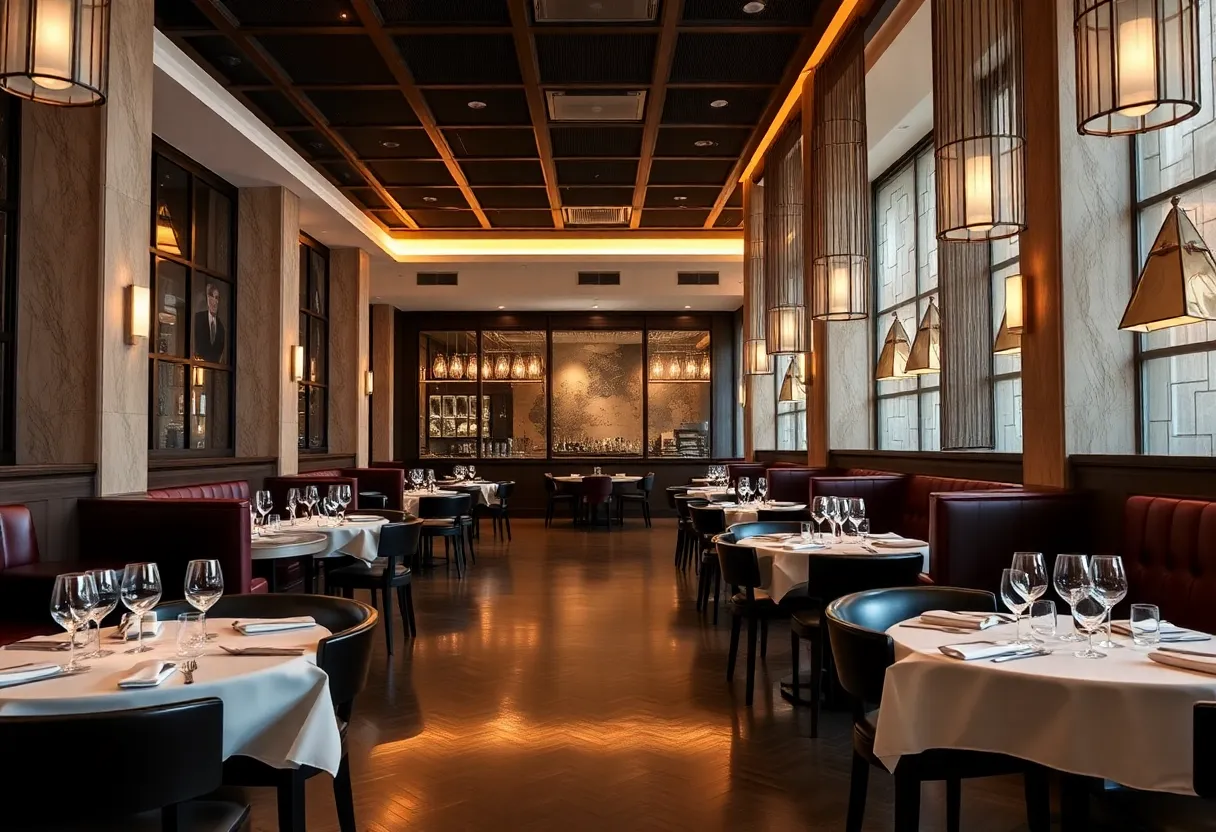Louisville, October 4, 2025
Ensō, a popular Japanese fusion restaurant in Louisville’s Highlands district, has closed permanently due to rising operational costs and labor shortages. After a decade of operation, the restaurant’s closure reflects broader challenges facing the local dining industry, including economic pressures intensified by the pandemic. The owner plans to pivot to a food truck model, seeking flexibility in the evolving landscape of the restaurant business. This closure underscores concerns about the survival of independent eateries in Louisville’s vibrant food culture.
Louisville’s Ensō Tops 2025 Restaurant Closures Amid Cost and Labor Struggles
Louisville, KY – Ensō, a prominent Japanese fusion restaurant in the city’s Highlands district, has closed permanently, leading the list of major restaurant shutdowns in 2025. The closure marks the end of a decade-long run for the establishment, which was beloved for its sushi offerings and creative cocktails. The decision follows years of mounting operational costs and persistent labor shortages, challenges that have intensified since the pandemic.
The restaurant’s shutdown underscores a tough environment for Louisville’s dining industry. Ensō attracted consistent crowds with its blend of traditional Japanese flavors and modern twists, but economic pressures proved too much to overcome. The owner has announced plans to shift to a food truck model, adapting to the changing landscape rather than fully exiting the business.
Operational costs, including rising rent, ingredient prices, and utility bills, played a key role in the closure. Labor shortages added further strain, as finding and retaining staff became increasingly difficult in the post-pandemic recovery period. These issues have not been unique to Ensō but reflect a wider pattern affecting eateries across the region.
Impact on the Local Dining Scene
The loss of Ensō leaves a noticeable gap in Louisville’s vibrant food culture. Located in the bustling Highlands area, known for its eclectic mix of eateries and nightlife, the restaurant was a go-to spot for both locals and visitors. Its closure contributes to a growing list of establishments that have shuttered in 2025, raising concerns about the sustainability of independent restaurants.
City officials and business advocates have highlighted the need for more support to help small businesses weather these challenges. Discussions around targeted recovery programs are underway, focusing on grants, tax incentives, and workforce development initiatives to bolster the sector.
Broader Challenges in Kentucky’s Restaurant Industry
Across Kentucky, the dining sector faces similar headwinds. The pandemic disrupted supply chains and customer habits, leading to a slow rebound for many venues. Ensō’s experience mirrors that of other spots that thrived pre-2020 but struggled with fluctuating demand and higher expenses afterward.
Labor issues remain a critical barrier, with many restaurants reporting difficulty in hiring skilled workers. This has led to reduced operating hours or limited menus in some cases, further impacting revenue. The pivot to alternative models, like food trucks, represents a creative response but not a full solution for all affected businesses.
Looking Ahead for Louisville’s Culinary Landscape
As Ensō transitions to mobile operations, the food truck scene in Louisville could see a boost. This format offers lower overhead and flexibility, allowing owners to test new concepts without the commitment of a fixed location. It also aligns with growing consumer interest in casual, on-the-go dining options.
The closure serves as a reminder of the resilience required in the hospitality industry. While Ensō’s story ends in its brick-and-mortar form, the owner’s gratitude toward patrons emphasizes the strong community ties that defined the restaurant. Future efforts to support local eateries may help prevent similar losses, preserving the diversity that makes Louisville’s dining scene special.
In summary, Ensō’s closure highlights the precarious balance between passion and profitability in restaurant ownership. As 2025 progresses, ongoing economic pressures will continue to test the sector, but adaptive strategies and community backing could pave the way for recovery.
FAQ
What is Ensō and why did it close?
Ensō is a prominent Japanese fusion restaurant in Louisville’s Highlands district that has closed permanently, leading the list of major restaurant shutdowns in 2025. The closure marks the end of a decade-long run due to escalating operational costs and labor shortages.
How long was Ensō in operation?
Ensō operated for a decade, attracting consistent crowds with its blend of traditional Japanese flavors and modern twists, but struggled with economic pressures post-pandemic.
What were the main reasons for Ensō’s closure?
The main reasons for Ensō’s closure include rising operational costs such as rent, ingredient prices, and utility bills, along with persistent labor shortages that intensified since the pandemic.
What is the owner of Ensō planning next?
The owner of Ensō plans to shift to a food truck model, adapting to the changing landscape rather than fully exiting the business.
How does Ensō’s closure affect Louisville’s dining scene?
Ensō’s closure leaves a noticeable gap in Louisville’s vibrant food culture, contributing to a growing list of establishments that have shuttered in 2025 and raising concerns about the sustainability of independent restaurants.
What broader issues are impacting Kentucky’s restaurant industry?
Kentucky’s restaurant industry faces headwinds from pandemic-disrupted supply chains and customer habits, leading to a slow rebound, with labor shortages causing reduced operating hours or limited menus.
Key Features of Ensō Restaurant Closure
| Feature | Description |
|---|---|
| Location | Louisville’s Highlands district |
| Duration of Operation | A decade |
| Specialties | Sushi and creative cocktails |
| Primary Reasons for Closure | Escalating operational costs and labor shortages |
| Post-Closure Plans | Pivot to food truck operations |
| Broader Impact | Highlights challenges in Kentucky’s dining scene |





